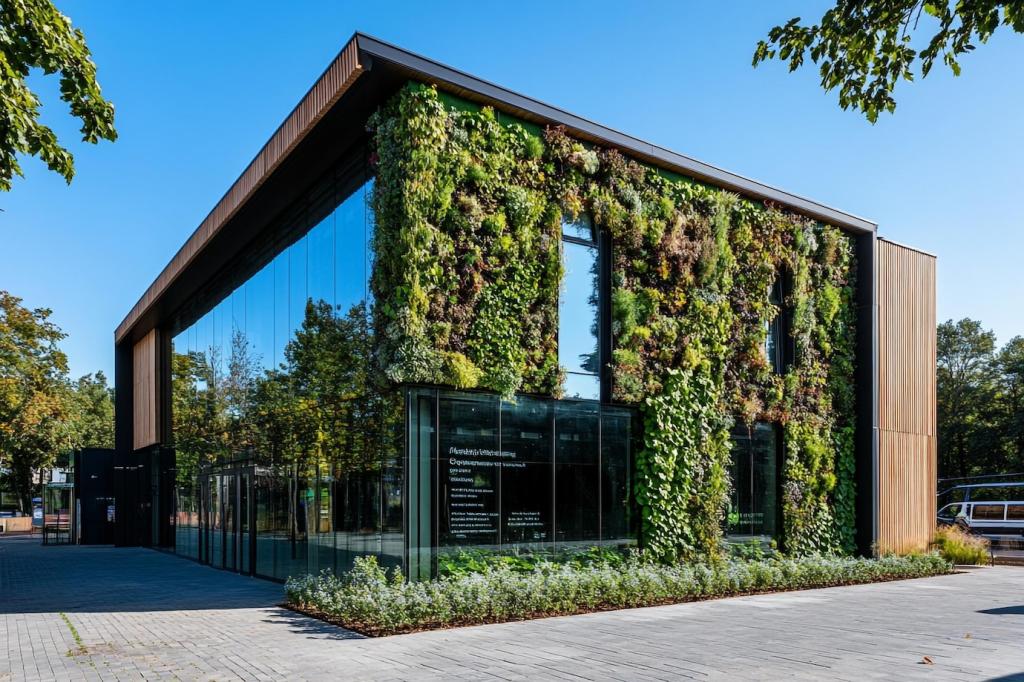Environmentally-Conscious Alternatives to Traditional Materials
As concerns about climate change and resource scarcity escalate, individuals and industries alike are seeking innovative ways to reduce their environmental impact. One of the most significant areas of focus is the transformation of material choices—replacing conventional, resource-intensive materials with more sustainable options. These environmentally-conscious alternatives not only help preserve natural resources but also advance toward a low-carbon, circular economy. In this exploration, we delve into pioneering solutions across various sectors, examining how responsible material selections shape a sustainable future.
Renewable Plant-Based Solutions

Bamboo as a Building Material
Bamboo has established itself as an exemplary alternative to traditional timber and steel in construction, owing to its rapid growth rate and exceptional strength-to-weight ratio. Unlike slow-growing hardwoods, bamboo matures in just a few years, making it highly renewable and capable of sequestering significant amounts of carbon dioxide during cultivation. Its natural flexibility and resilience enable it to withstand seismic activity, earning it favor in earthquake-prone regions. Aside from being structurally sound, bamboo also adds natural aesthetic appeal and requires minimal chemical processing. Its versatility extends from scaffolding and flooring to entire housing frameworks, providing a viable, eco-friendly solution for sustainable architecture around the globe.

Hemp-Based Textiles
Hemp-based textiles represent a transformative shift in the fashion and fabric industries, traditionally dominated by water- and pesticide-intensive cotton and synthetic fibers derived from petroleum. Hemp plants can be cultivated with minimal agricultural inputs, regenerate soil quality, and require less water than cotton. The resulting fibers are robust, naturally antimicrobial, and biodegrade efficiently, reducing environmental pollution from garment disposal. As brands and consumers become increasingly aware of the ecological impacts of their choices, hemp textiles are gaining traction for apparel, home goods, and industrial fabrics. Embracing hemp helps to foster sustainable farming practices, diminish reliance on fossil fuel-based synthetics, and promote a circular textile economy.

Bioplastics from Corn and Sugarcane
Bioplastics derived from renewable crops such as corn and sugarcane are emerging as vital alternatives to conventional petroleum-based plastics. These materials can be engineered to mimic the properties of traditional plastics while offering improved environmental profiles, including reduced greenhouse gas emissions during processing and, in some cases, enhanced biodegradability. Although the transition to bio-based plastics presents challenges—such as the need for appropriate industrial composting facilities and concerns over land use—continued advances in biopolymer technology are expanding their potential applications. By supporting the adoption of bioplastics, society moves closer to decreasing plastic pollution and dependency on non-renewable resources.
Recycled and Upcycled Alternatives
Recycled steel and aluminum play a pivotal role in sustainable building, transportation, and packaging. The process of recycling metals typically consumes significantly less energy than extracting and refining ores, thus drastically lowering associated carbon emissions. In addition, metals can be recycled repeatedly without degrading their structural properties, supporting a truly circular material lifecycle. By increasing the proportion of recycled content in products, manufacturers help to diminish environmental impacts such as habitat destruction and air pollution from mining activities. The ongoing commitment to recycling metals forms a cornerstone of environmentally conscious design, contributing to more sustainable infrastructure and a reduced ecological footprint.


Mycelium-based composites—derived from the root structures of fungi—are being hailed as a disruptive sustainable alternative across packaging, construction, and furnishings. Grown from agricultural waste and requiring little energy, mycelium forms biodegradable, lightweight materials with surprisingly robust structural properties. These composites can be molded into virtually any shape, replacing traditional polystyrene foams, particleboard, and even leather in some applications. At end-of-life, they fully compost without releasing harmful residues or microplastics. The proliferation of mycelium technologies not only minimizes dependence on fossil-derived materials but also supports agricultural circularity by valorizing underutilized waste streams.

Aerogels, renowned for their exceptional insulating properties and minimal weight, are being reimagined through the use of recycled raw materials such as post-consumer glass or plastics. These advanced materials provide high thermal resistance, making them invaluable in energy-efficient construction and refrigeration. By utilizing waste feedstocks, manufacturers reduce the environmental costs associated with producing conventional aerogels from pure silica or other resource-intensive ingredients. This blend of performance and sustainability makes recycled-content aerogels a prime example of how material science can drive meaningful environmental progress while advancing product functionality.

Traditional epoxy resins, integral to coatings, adhesives, and composite materials, are typically derived from petrochemicals. Bio-based epoxy resins, however, leverage renewable plant oils, lignin, or agricultural waste as primary ingredients, providing a significant reduction in fossil fuel use and associated emissions. These sustainable alternatives are engineered to match or exceed the mechanical performance of conventional resins while offering easier recyclability and often lower toxicity. Continued development of bio-based epoxy systems is supporting the broader adoption of green chemistry in high-performance sectors, demonstrating that robust and durable materials can be compatible with an eco-conscious ethos.
